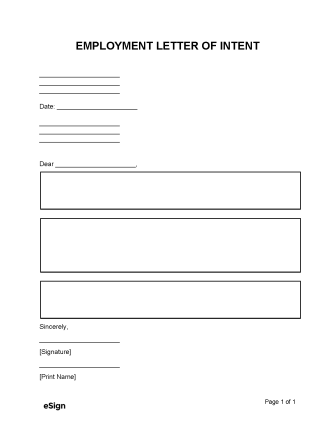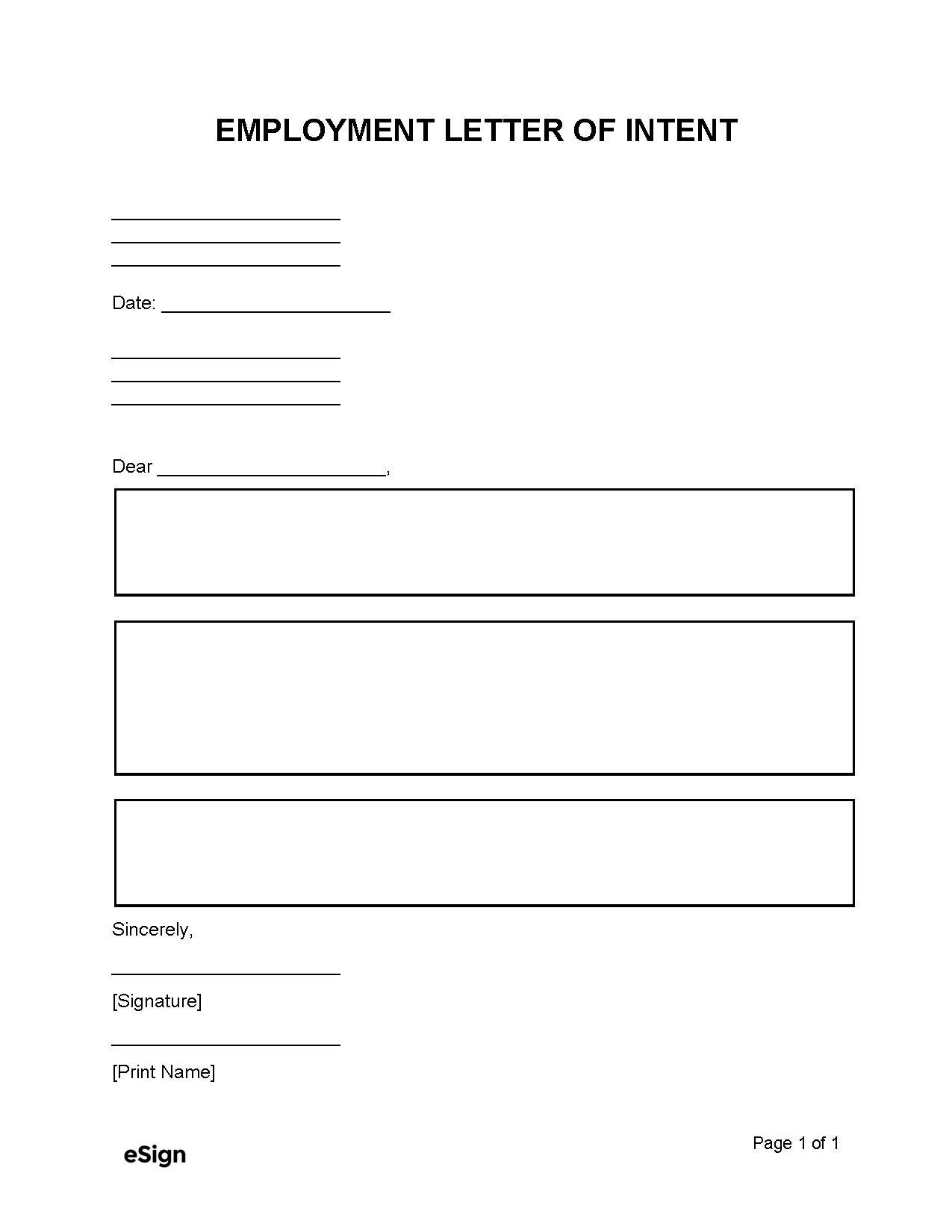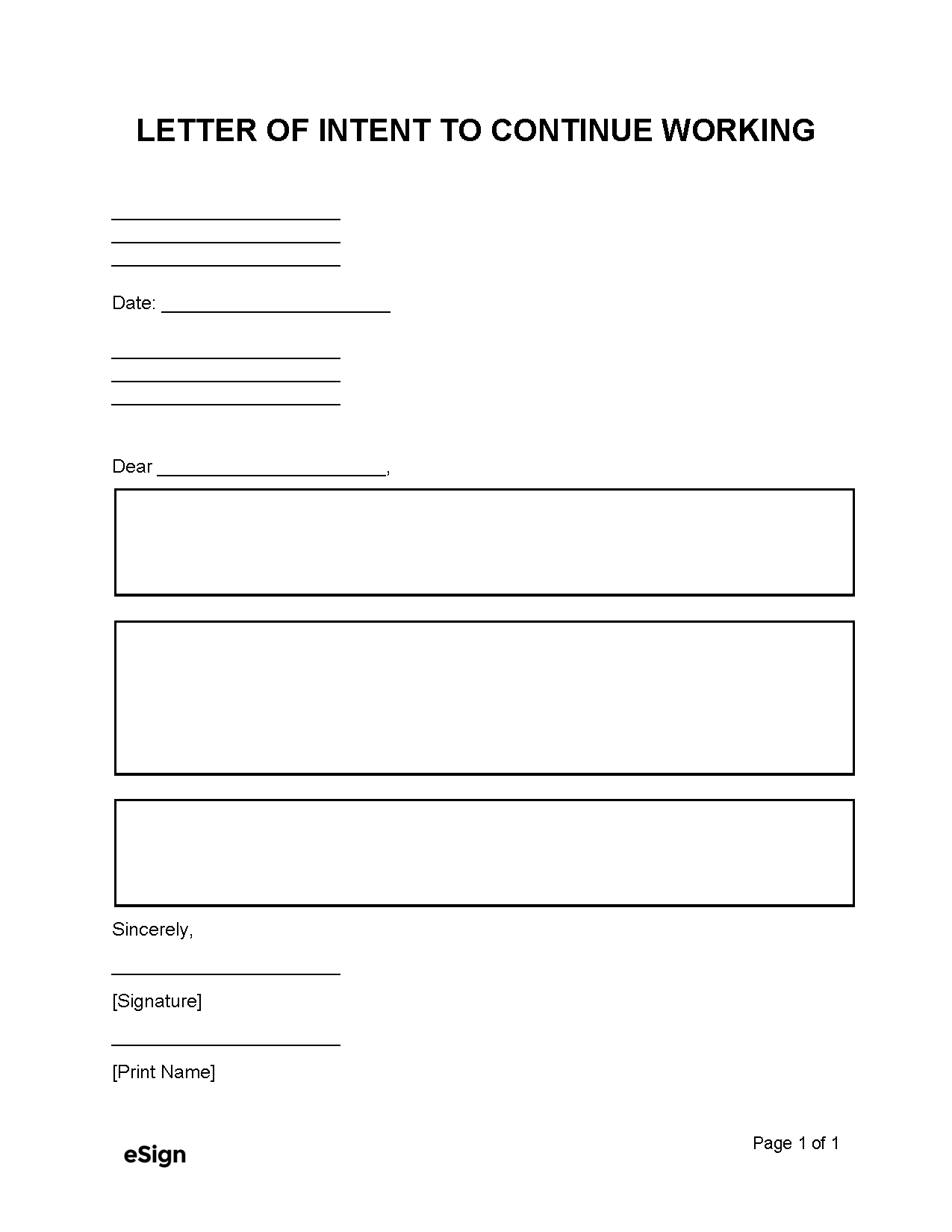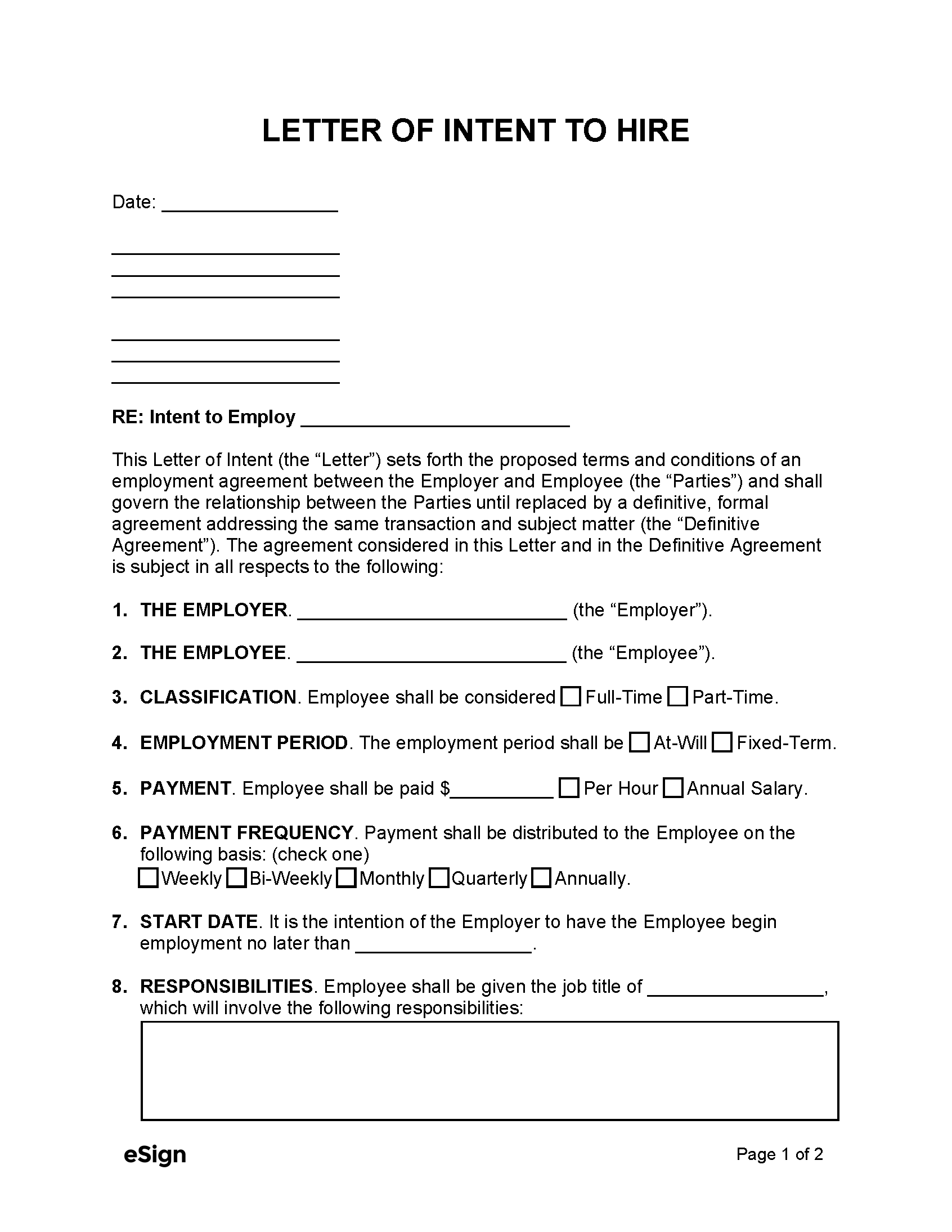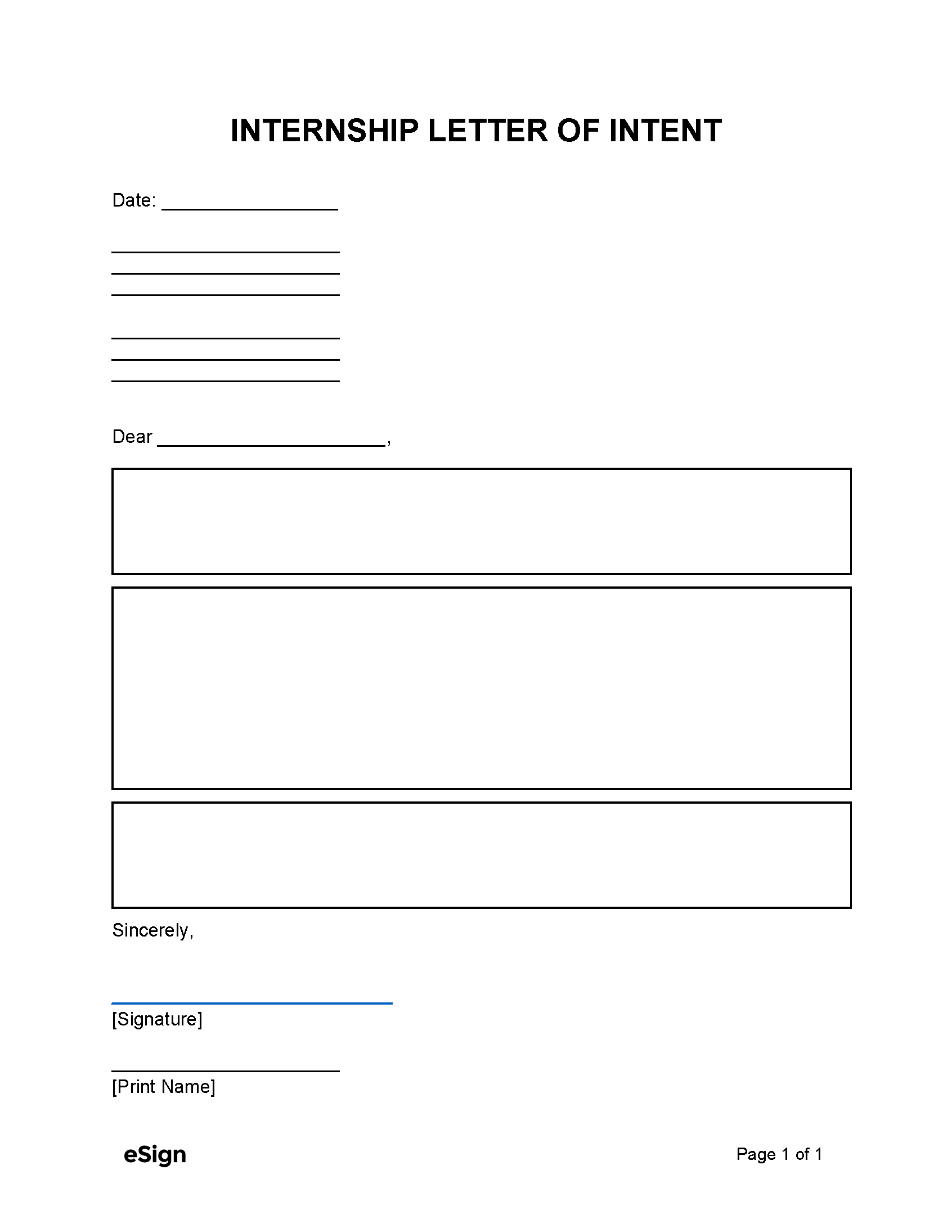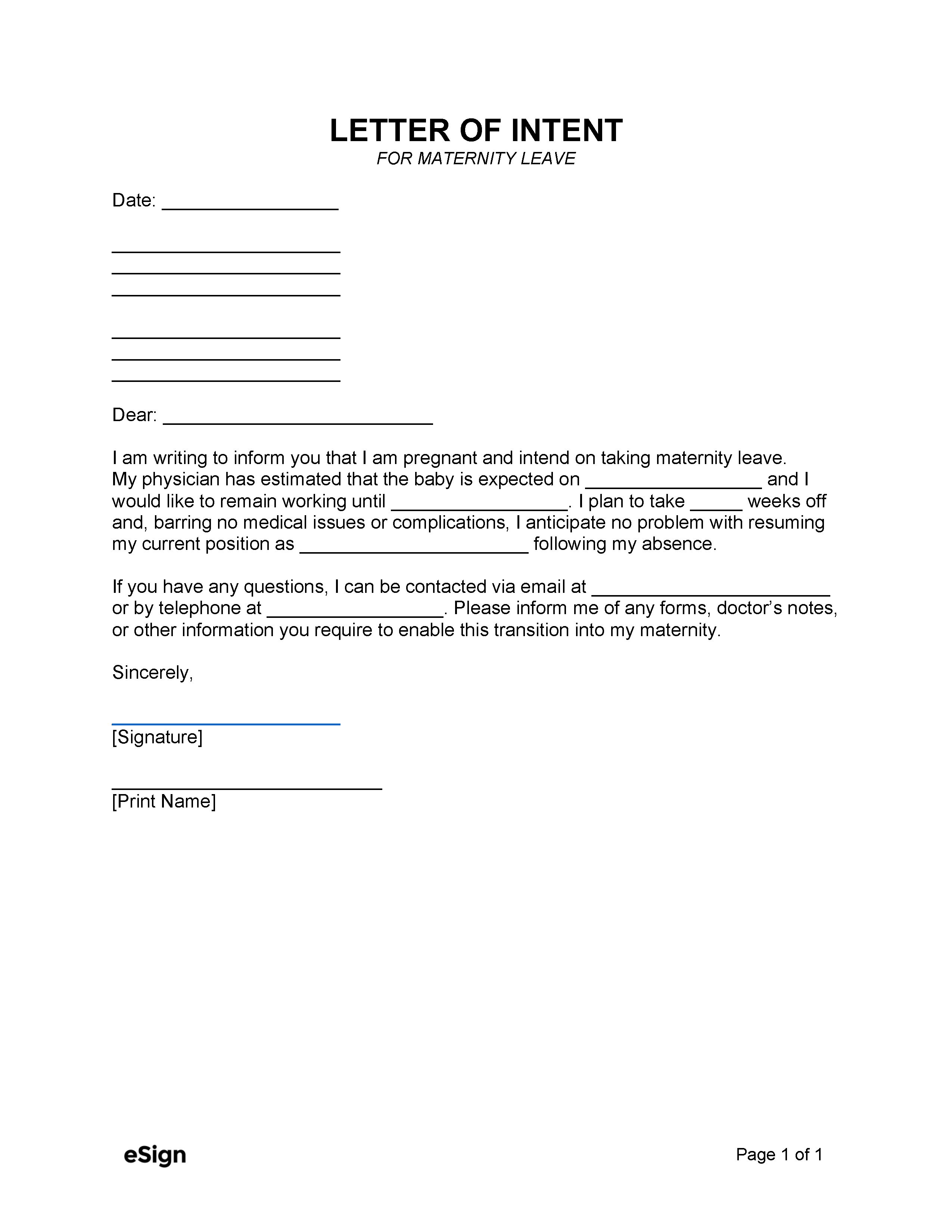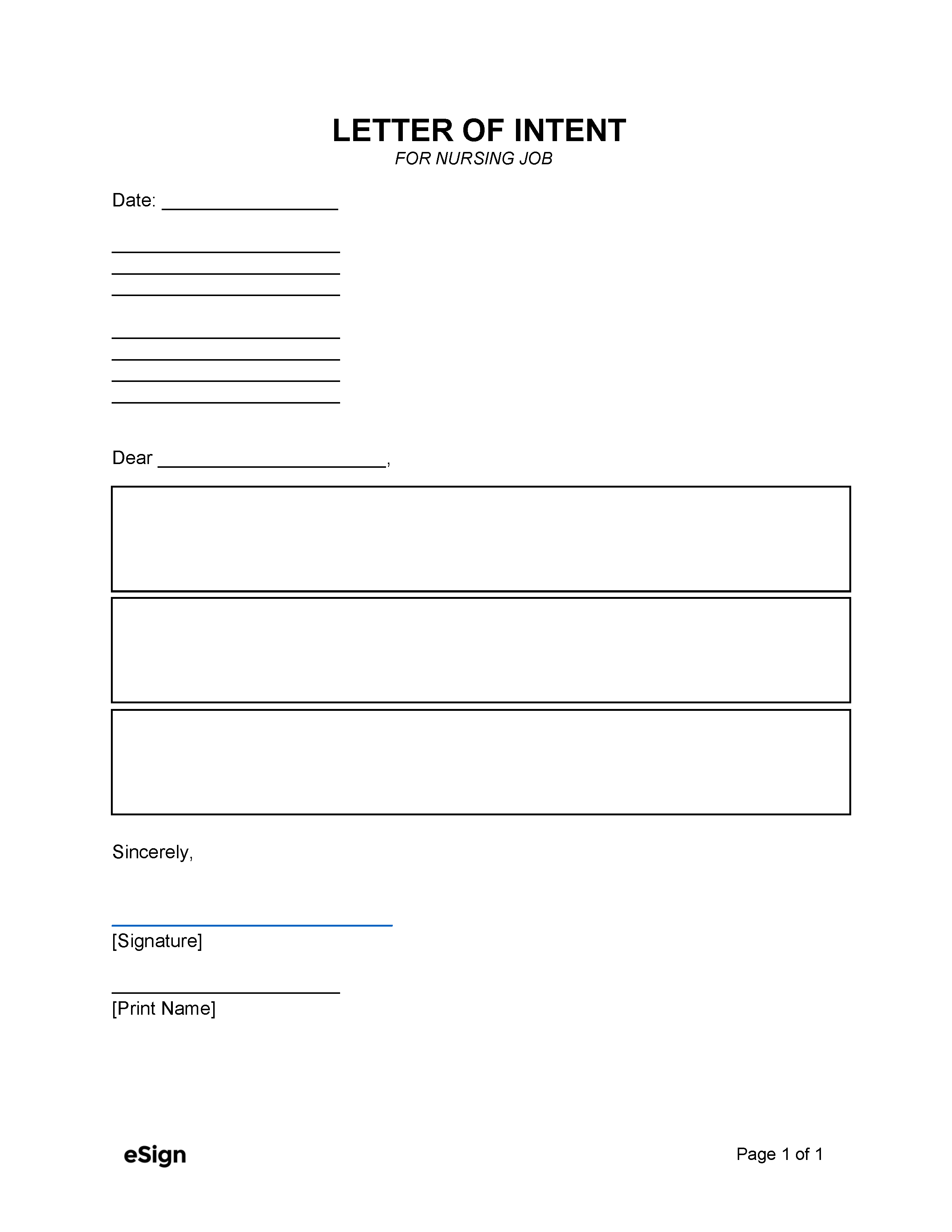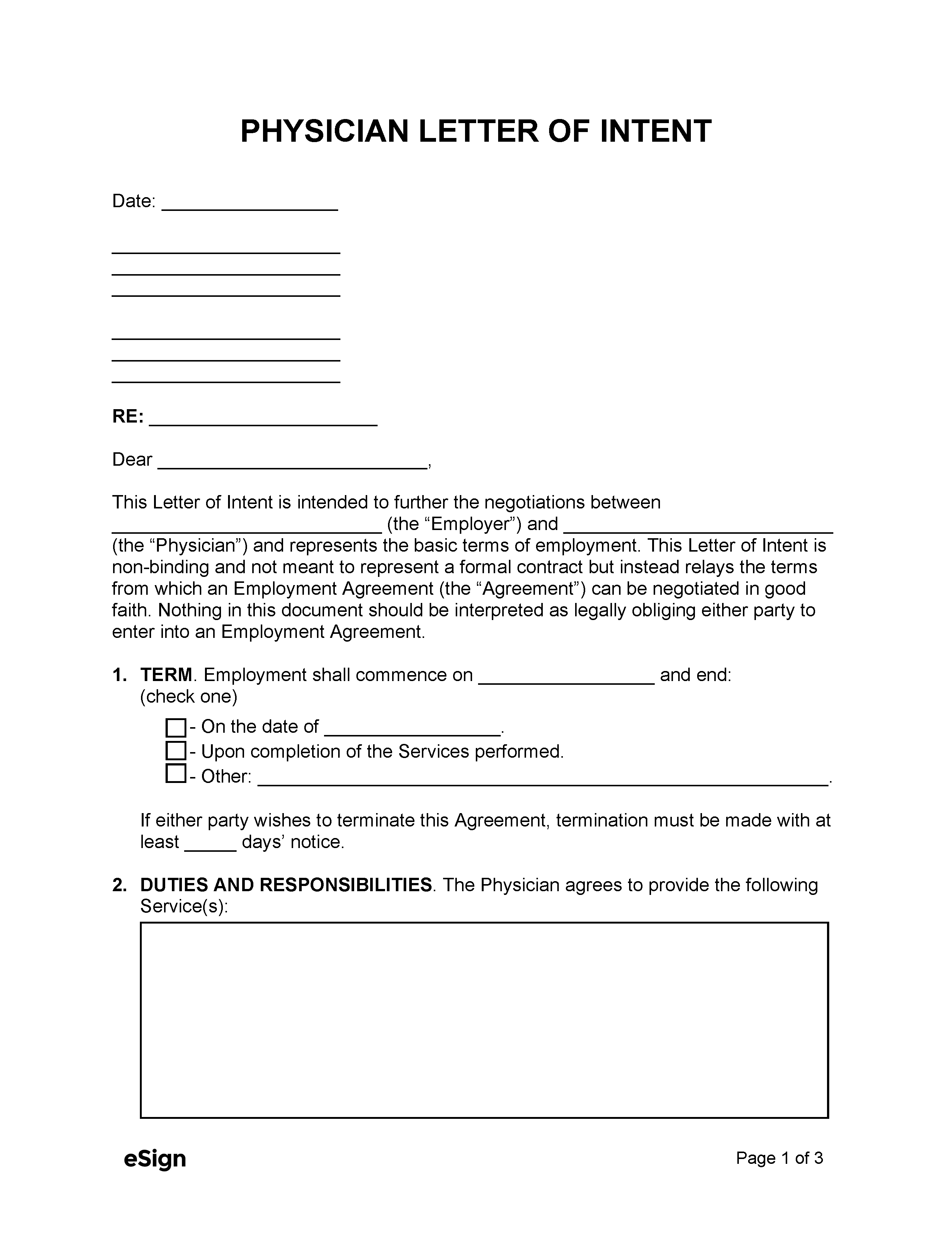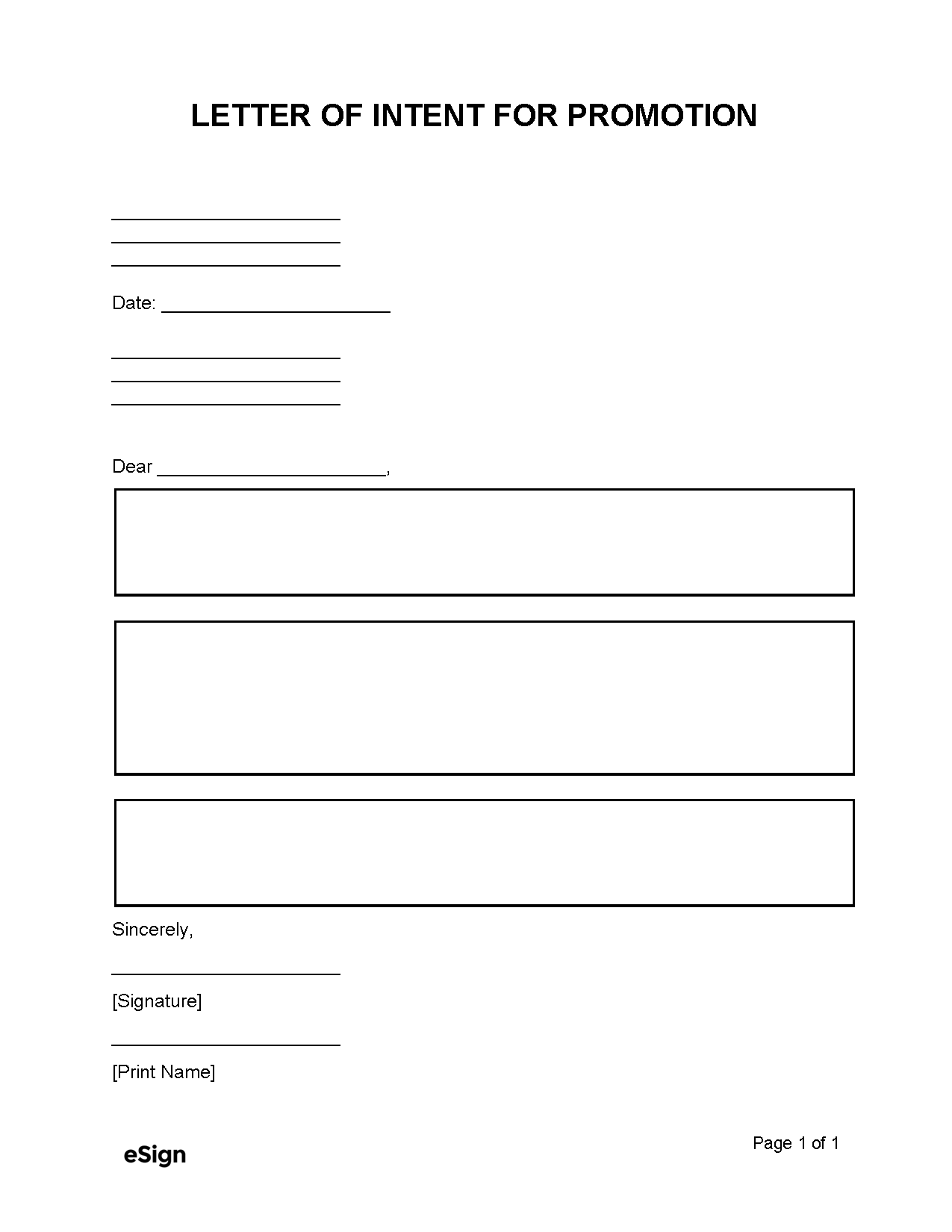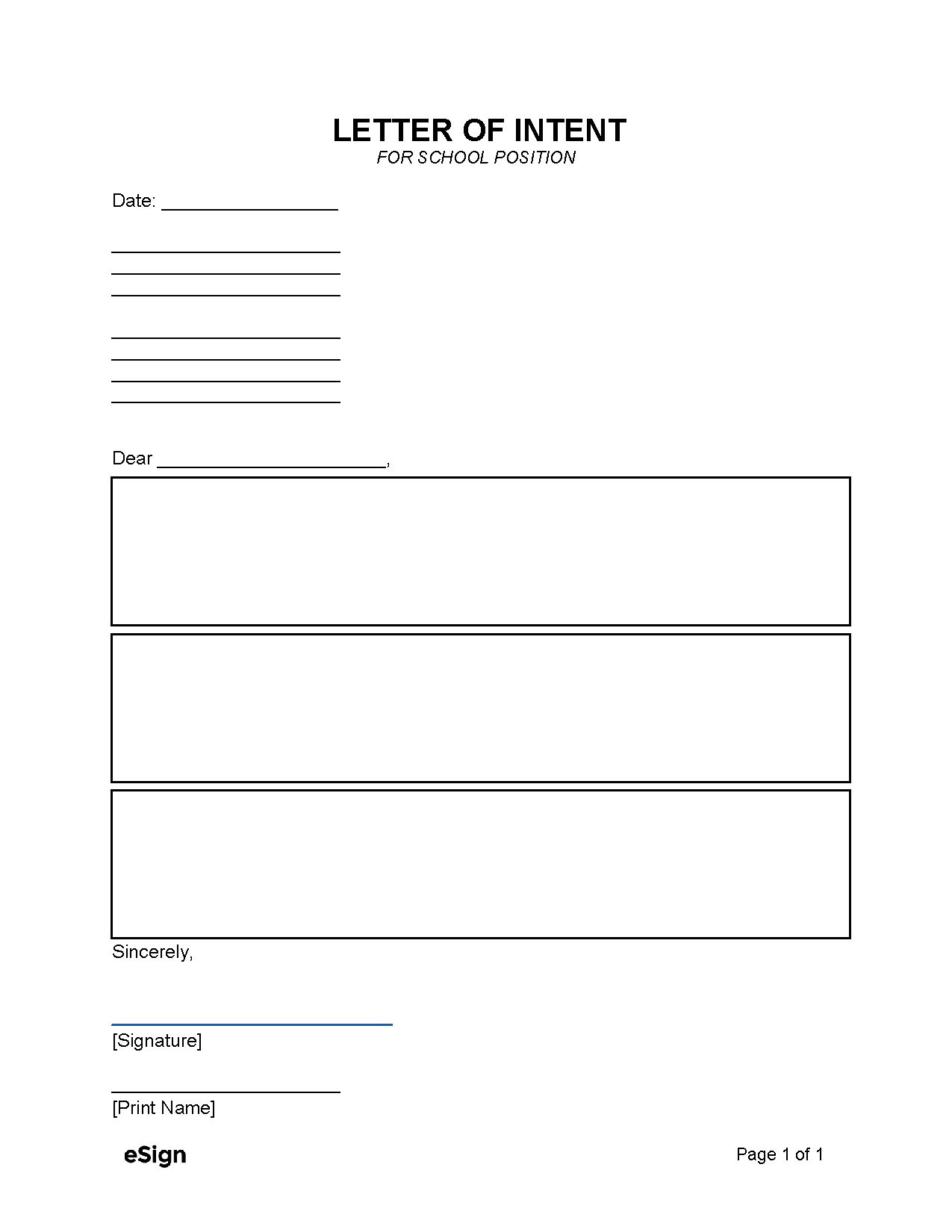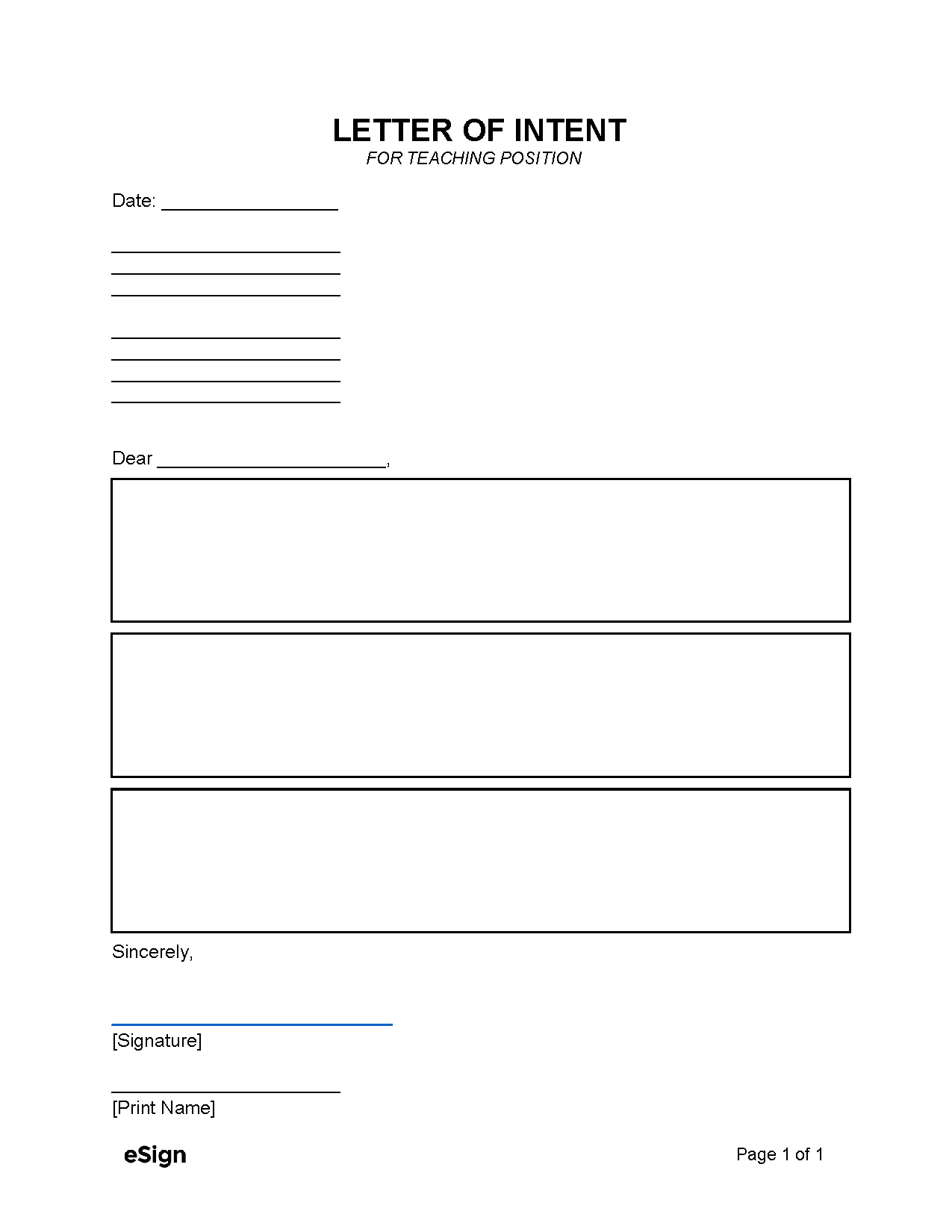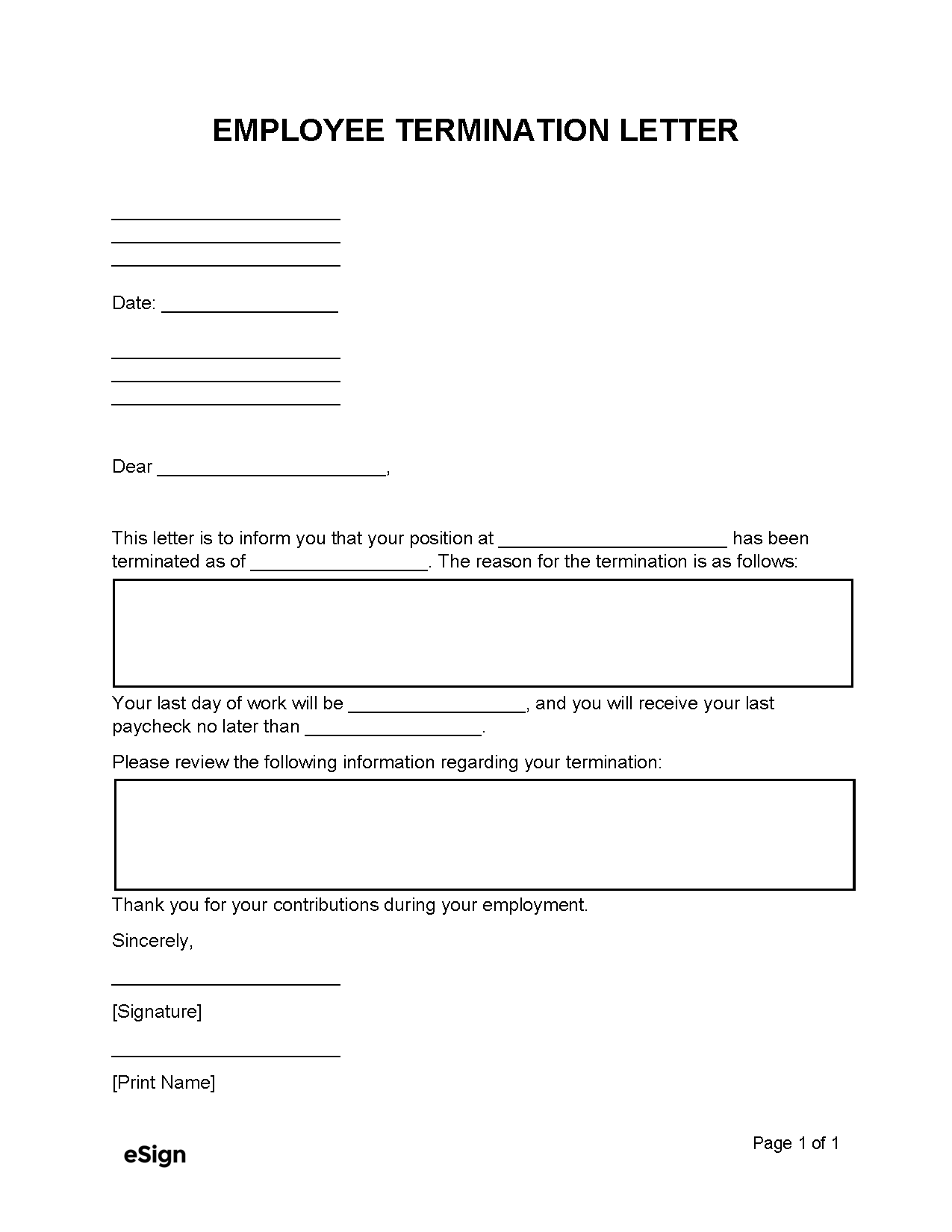By Type (10)
When to Use a Letter of Intent
Letters of intent are commonly used when an individual finds a job opening they are interested in. Even if an employer is not actively hiring, a letter of intent shows the applicant’s initiative and readiness to join the company should a position become available.
In some cases, an employer may require that a letter of intent be submitted during the application process. This is typically required when companies are looking to hire for executive and upper-management roles or specialized positions.
Required Forms
It’s recommended to find out what documentation might need to accompany a letter of intent. This could include:
- Application
- Resume
- CV (curriculum vitae)
- References
- Letters of recommendation
- Certifications and licenses
- Portfolio
- Transcript
Sample
Download: PDF, Word (.docx), OpenDocument
EMPLOYMENT LETTER OF INTENT
[SENDER NAME]
[SENDER STREET ADDRESS]
[SENDER CITY, STATE, ZIP]
Date: [MM/DD/YYYY]
[RECIPIENT NAME]
[RECIPIENT STREET ADDRESS]
[RECIPIENT CITY, STATE, ZIP]
Dear [MANAGER NAME],
My name is [APPLICANT NAME], and I am very interested in working for your company, specifically in the position of [POSITION]. I have worked in the [FIELD OF WORK] field for [#] years, and I believe I would be a valuable addition to your team.
At my previous job, I was responsible for [DUTIES] and have learned [NEW SKILLS]. I believe this experience, in combination with my willingness to learn and ability to do so quickly, makes me a suitable candidate for [POSITION].
I am very passionate about [FIELD OF WORK] and am a hard worker with excellent interpersonal skills. I gained a lot of knowledge from my former employer, but I am keen to learn more, and I believe your company will provide me with the opportunity to be a successful [JOB POSITION].
You will find my full resume attached to this letter, and I would be happy to go over my qualifications in further detail and answer any questions you may have. I appreciate the time you have taken to read my letter and look forward to meeting in person and discussing this position.
Best regards,
[APPLICANT NAME]
